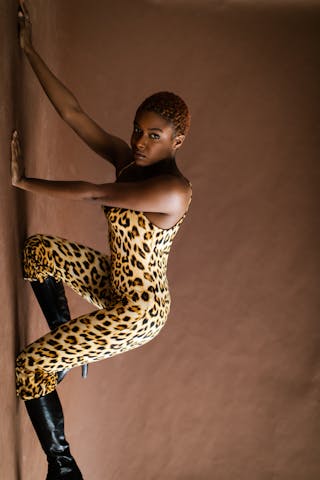The Slow Fade in Dating: What Is It and How to Deal with It
Have you ever been in a situation where things started off great with someone you were dating, but then they gradually started to fade away? It can be frustrating and confusing, but understanding the slow fade can help make sense of it all. Check out this insightful article for a deeper look into this common dating phenomenon and gain some clarity on what might be happening in your own dating life. And remember, you deserve to be with someone who is fully present and invested in the relationship. Check out this article for more insight.
Dating in the modern world can be a minefield of mixed signals and confusing behavior. One phenomenon that has become increasingly common in the dating world is the "slow fade." This term refers to the gradual disappearance of communication and interest from one person in a dating relationship. It can be frustrating and hurtful to experience, but understanding what the slow fade is and how to deal with it can help you navigate the dating scene with grace and confidence.
Check out this article on dating apps for fitness singles and find the perfect app to help you find a fit and active partner.
What Is the Slow Fade?
Check out the Reveal app for a revolutionary way to find your perfect match!
The slow fade is a passive-aggressive way of ending a relationship or signaling disinterest. Instead of having an honest conversation about their feelings or intentions, the person who is initiating the slow fade will gradually reduce their communication and availability. This can manifest in a variety of ways, such as taking longer to respond to texts or calls, canceling plans frequently, or making excuses to avoid seeing the other person in person.
The slow fade can be a confusing and painful experience for the person on the receiving end, as it can leave them wondering what went wrong and feeling rejected without closure. In some cases, the slow fade may be a result of the other person's fear of confrontation or difficulty in expressing their true feelings. However, it can also be a sign of cowardice and lack of respect for the other person's emotions.
How to Recognize the Slow Fade
It's important to be able to recognize the signs of a slow fade early on in a relationship to avoid wasting your time and energy on someone who is not fully invested. Some common red flags to look out for include:
- Decreased communication: If the person you're dating used to be attentive and responsive but has suddenly become distant and uninterested in maintaining regular contact, it could be a sign of the slow fade.
- Excuses and cancellations: If the other person frequently cancels plans or makes excuses to avoid spending time with you, it may be a sign that they are trying to distance themselves from the relationship.
- Lack of effort: If the person you're dating stops putting in the effort to make plans, show affection, or engage in meaningful conversations, it could be a sign that they are losing interest.
How to Deal with the Slow Fade
If you suspect that you are experiencing the slow fade in your dating relationship, it's important to take action to protect your emotional well-being. Here are some tips for dealing with the slow fade:
- Communicate openly: If you notice a change in the other person's behavior, it's important to address it directly and ask for clarification. Express your feelings and concerns in a calm and respectful manner, and give the other person the opportunity to explain their actions.
- Set boundaries: If the slow fade continues despite your attempts to address it, it may be time to set boundaries and protect yourself from further emotional distress. This could involve reducing your own efforts to reach out and engage with the other person, or even taking a step back from the relationship altogether.
- Focus on self-care: Dealing with the slow fade can be emotionally draining, so it's important to prioritize self-care and surround yourself with supportive friends and family. Engage in activities that bring you joy and fulfillment, and remind yourself of your worth outside of a romantic relationship.
Moving On from the Slow Fade
If the slow fade results in the end of the relationship, it's important to focus on healing and moving forward. Take the time to process your emotions and gain closure, and remind yourself that you deserve someone who is fully committed to you and your happiness. Use the experience as an opportunity for self-reflection and personal growth, and remain open to the possibility of finding a more fulfilling and respectful relationship in the future.
In conclusion, the slow fade is a common but hurtful phenomenon in the dating world. By recognizing the signs of the slow fade and taking proactive steps to address it and protect your well-being, you can navigate the dating scene with confidence and resilience. Remember that you deserve honesty, respect, and genuine connection in your relationships, and don't settle for anything less.
- https://matchmaker.timebombrecordings.com/posts/pegging-meaning-and-everything-you-need-to-know-about-pegging-sex/
- https://dating-guide.campsupernow.com/posts/gynesexuality-what-does-it-mean-to-be-gynesexual/
- https://sex-guide.campsupernow.com/posts/sex-after-csection-how-long-to-wait-to-have-sex-after-a-caesarean/
- https://chat.campsupernow.com/posts/doggy-style-sex-tips-you-need-to-know/
- https://sex-app.timebombrecordings.com/posts/how-an-open-relationship-changes-your-sex-life-sex-in-an-open-relationship/
- https://flirting.fu-direct.net/
- https://dating-website.themountaintopplay.com/posts/the-22-best-sex-toys-for-women-and-people-with-vulvas-for-2024/
- https://dating-website.getweps.com/posts/what-is-the-slow-fade-in-dating/
- https://chatting.thehottieandthenottie.com/
- https://dating-blog.themountaintopplay.com/posts/my-best-sex-ever-was-a-threesome-with-my-husband-and-a-sex-worker/
- https://meet-singles.getweps.com/posts/5-positions-that-prove-clothes-make-sex-hotter/
- https://dating-for-free.campsupernow.com/posts/my-best-sex-ever-was-with-a-bollywood-star/
- https://singles-website.getweps.com/posts/this-new-dating-app-runs-a-background-check-on-your-matches/
- https://hookup-blog.themountaintopplay.com/posts/does-your-dating-app-want-you-to-stay-single/
